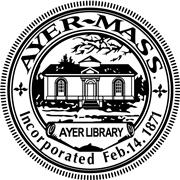Abutters Guide

Ayer Conservation Commission
Guide for Abutters
The Ayer Conservation Commission has prepared the guide to explain what you, as an abutter to a proposal to conduct work in or near wetlands, can expect during the process of review of this project. It is not intended as a legal guide, but to help you understand how to participate in hearings, get information, and best communicate any concerns you may have. To reach the Conservation Commission, please contact our office at 978-772-8249 or concom@ayer.ma.us. We are located on the 3rd floor of Town Hall at 1 Main St.
Why am I Receiving This Notice?
You are receiving this notice because you are an abutter (as defined by law) to a proposal to conduct work in or near wetlands that is being reviewed by the Ayer Conservation Commission. The notice is to let you know that a public hearing will be held regarding this activity.
How Can I Find Out More About What is Proposed?
An application and supporting materials are on file at the Conservation Commission office. You are welcome to review this information and may pay for copies of any information that you would like to keep. Since we are sometimes conducting site visits, and the office is only staffed part time, it is best to make an appointment to review a file to ensure that staff will be available.
What Should I Expect at the Public Hearing?
At the first hearing, the applicant or property owner will present plans and explain what is proposed for the Commission and the audience. The Commission will ask questions. There will be an opportunity for those in the audience to ask questions or offer opinions. Comments may also be submitted in writing at or before the hearing.
Since the Commission often hears several projects in an evening, hearings last a specified period of time. At the end of this time, the hearing may be either closed (if there is no more information to be received) or continued (if the Commission needs additional information to make a decision). Continued hearings may be several weeks or months in the future depending on how long it takes the applicant to gather the required information, and the Board’s workload. You will not receive notice of the continued hearing date.
Occasionally, the hearing process is delayed due to weather, the absence of a Board member, or at the applicant’s request. To verify that a hearing is being held on a scheduled date, you can call the Conservation Commission office.
How Can I Make My Concerns Known if I Cannot Attend?
Comments can be submitted in writing prior to the close of the public hearing. Copies will be provided to the Commission members. As with all testimony (oral and written), it is most helpful to raise concerns early in the process.
What Happens After the Hearing?
After the hearing and the record are closed, no new information can be submitted. The Commission deliberates and issues a decision – called an Order of Conditions – at a Commission meeting, usually within 21 days of closing the hearing. The Commission generally either approves a plan with conditions or denies it if it cannot be adequately conditioned to protect wetland resource areas. Interested individuals are welcome to attend and listen to the Commission’s deliberations, but may not make further comments.
What Issues Does the Commission Consider?
The scope of issues that the Commission can consider in reviewing proposed projects is defined by state and local law and regulations. In presenting testimony (oral or written) it is most helpful to focus on these issues.
Will I Be Notified of the Decision?
Copies of decisions are not sent to abutters. You may request a copy of any decision from the Conservation Commission office. The owner is also required to record it at the Registry of Deeds. Permits are generally valid for three years and may be extended by the Commission.
How Can I Appeal?
Appeals of the Conservation Commission’s decisions are handled in two ways. Appeals of decisions under the Wetlands Protection Act (called a Request for a Superceding Order of Conditions) must be made to the Department of Environmental Protection within 10 days using forms supplied by DEP. Appeals may be made by abutters, 10 residents of the community or the Department of Environmental Protection. Appeals under the Town of Ayer Wetlands Protection Bylaw must be made to Superior Court by an aggrieved party.
Suggestions for Presenting Testimony at Public Hearings
- State your name and address for the record before you speak and each time you speak
- Feel free to use the proposed plan to point out concerns you may have and try to stand so that the Commission can see the area to which you are referring
- Try to state all of your questions or concerns at once and then allow the next person to speak
- Be polite and respectful of differing opinions
- While you may have questions of the applicant, you should address them to the Commission
- Avoid personal attacks – stick to issues relating to the project and within the scope of the Commission’s review.
For example, issues like traffic and noise are outside of the Commission’s purview - Don’t ask to speak again unless everyone has had a chance to be heard
- It is fine to just say “I agree with Mr. Smith about that drainage issue” rather than restating the same concerns
- Comments made at one hearing need not be repeated at subsequent ones unless they have not been address

